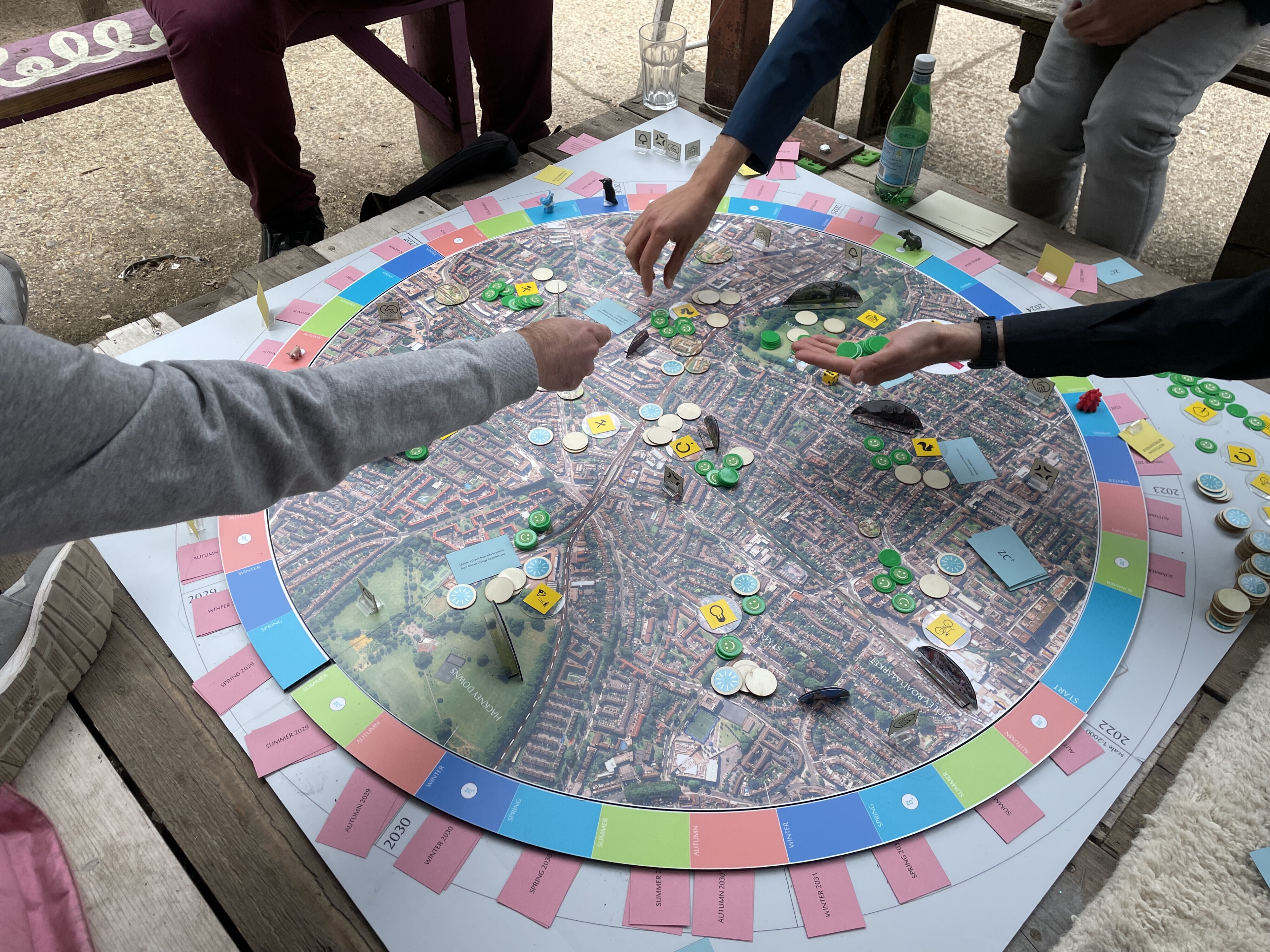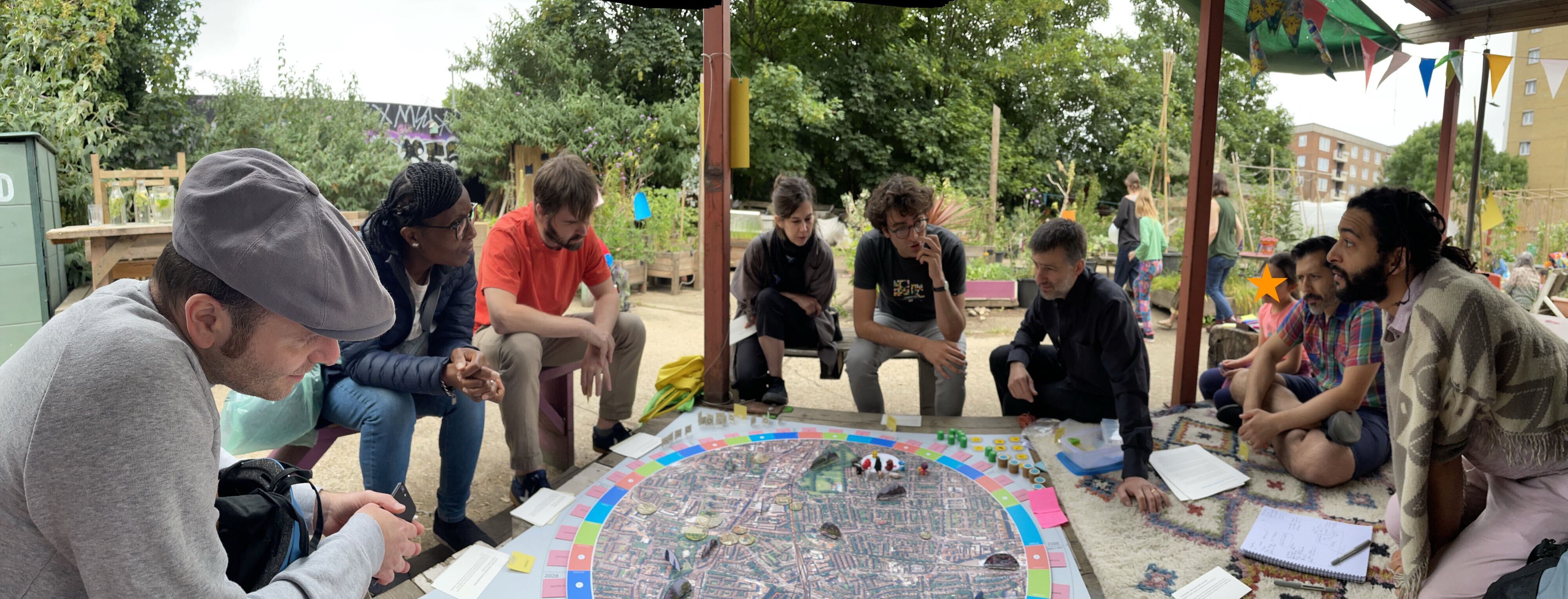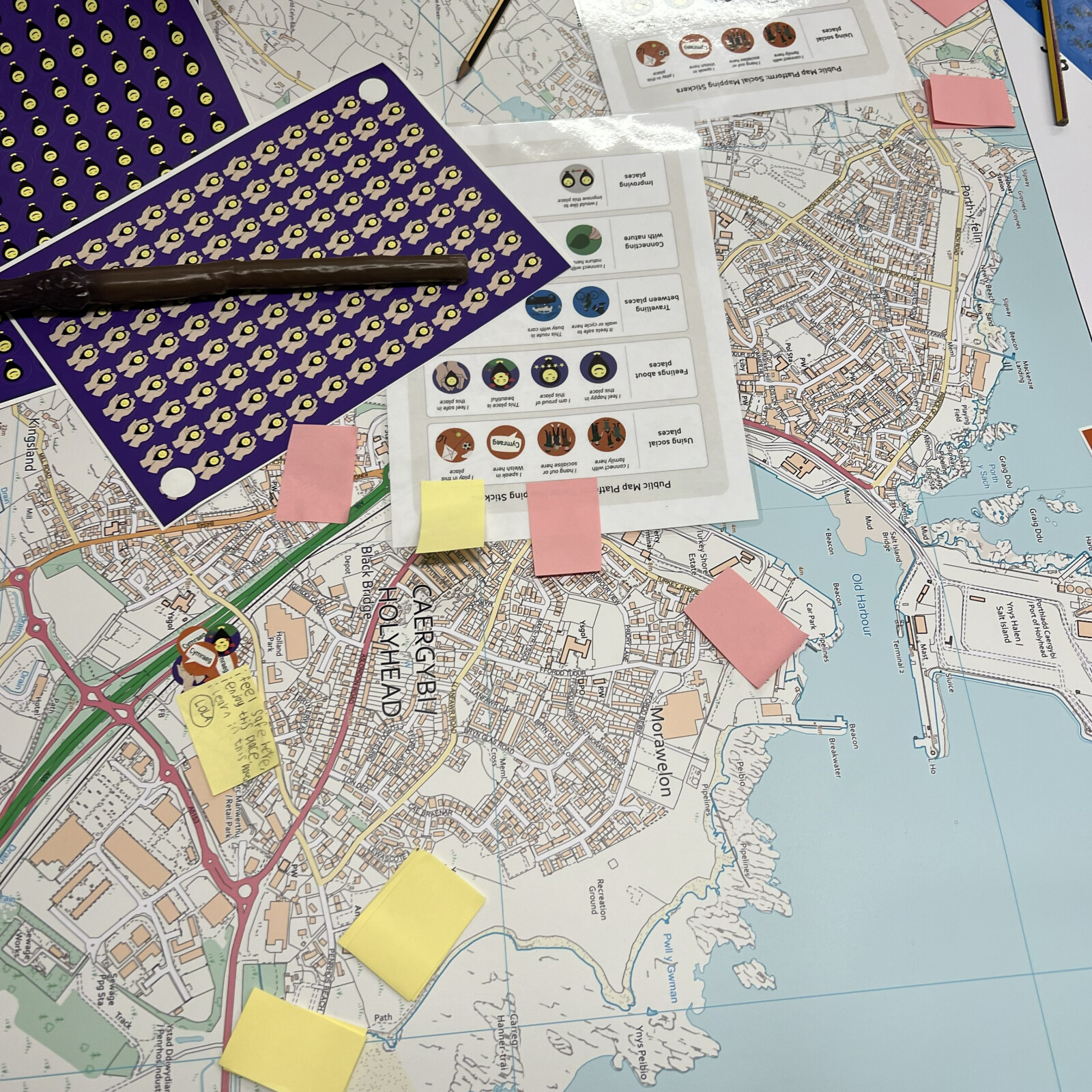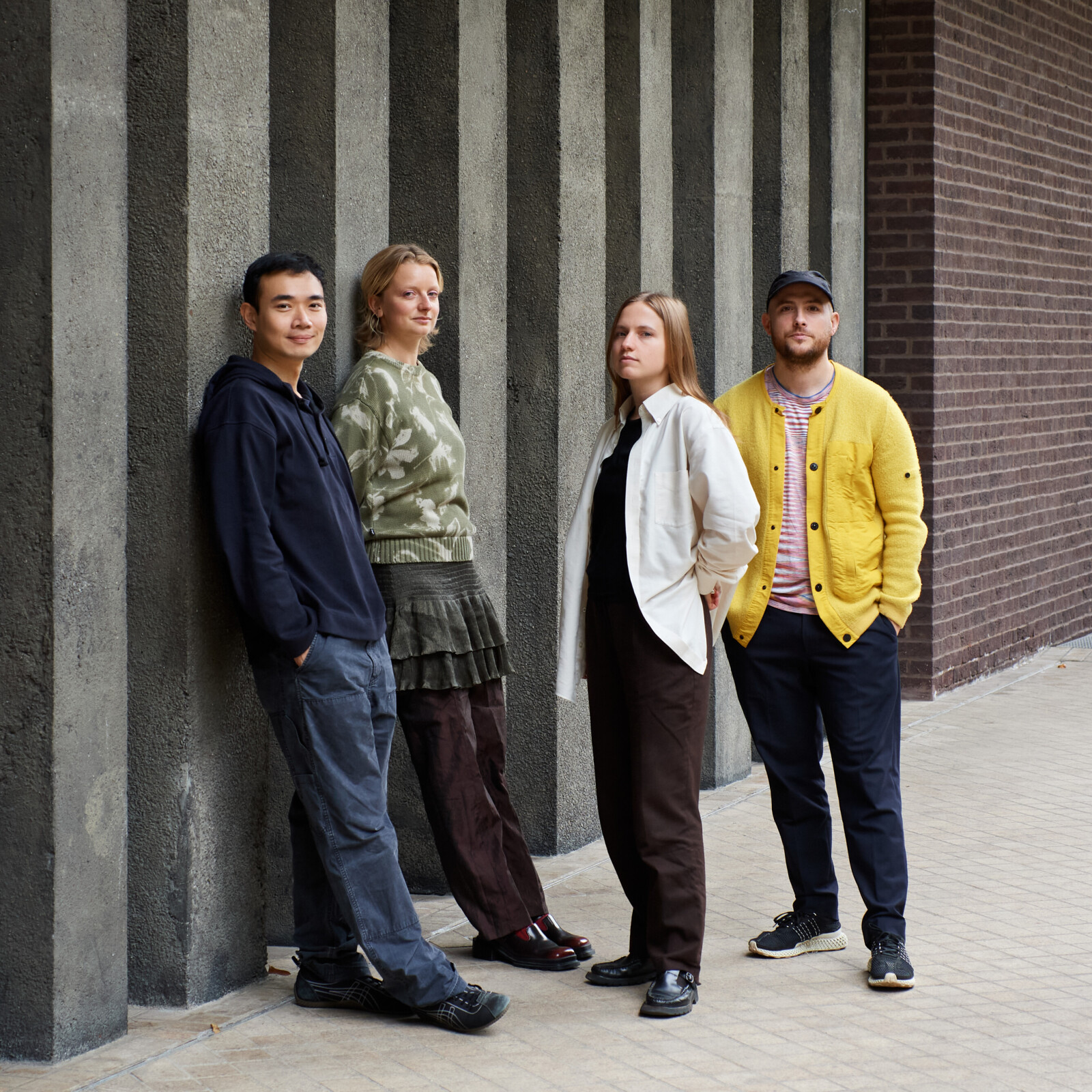The Design Exchange Partnerships are fifteen AHRC-funded research projects integral to the Future Observatory programme. Each funded project brings researchers into collaboration with non-academic partners, such as local councils and businesses, to address the climate crisis. In this interview series we highlight a particular project; its aims, obstacles and ambitions going forward.
We can learn a lot through games. Whether through playground hopscotch or dinner table monopoly, games can help us discover an empathetic side, an aptitude for teamwork or simply a bad loser in the family. What can play teach us about wider society? Can we utilise gamification and the culture of play to facilitate positive behavioural changes while facing the climate crisis? The team behind ZeroCity+ are looking to find out. This Design Exchange Partnership project brings together Yiorgos Papamanousakis of Urban Transcripts, non-profit urban development consultancy, and Dr Carolina Vasilikou, a lecturer in Architecture at the University of Reading and Dr Felipe Lanuza, research associate at the University of Reading, to develop a game facilitating dialogue on the climate crisis between policymakers and citizens. Future Observatory’s Leyla Salih spoke with the researchers to discover more about how we can use play as a tool for meaningful engagement in the making of our cities.
LB
Can you give me an overview of your research?
CV
ZeroCity+ is a project that looks at how an urban game can help individuals, communities and institutions speak to each other, communicate with each other around the climate emergency and actions that help mitigate aspects of climate change and create really actionable strategies that can find their place into policy making.
LB
How did the partnership between Urban Transcripts and the University of Reading materialise and evolve?
YP
This was a dream partnership for this project because what drove our work was people sharing the same mission, values, drive and desire to change things, and to experiment in a playful way and to get out of our comfort zones and work with new people, new areas, new tools.
CV
The Design Exchange Partnership, rather than the knowledge exchange partnership, was also meaningful for us. We all happen to be architects and urban planners which was really interesting as a starting point for this project. I think we have a good grounding in design thinking methodologies and we also engaged with gaming methodologies and serious play that some of us had some previous connection with. For example, Urban Transcripts had piloted an urban ingredients game called Remix(c)ity (in partnership with Konzulát Studios) that was first showed in a festival in Berlin, and I was connected with a European network called Trust In Play that started in Athens. We will actually be using them in the next phase of the project, involving them a little more. So there were the seeds for a really meaningful design collaboration to take place.
LB
Why did you decide to use a game as a design output and method of communication?
YP
From my experience with communities through Urban Transcripts but also in planning, I often found that the methods of engaging in communities often don’t allow for very meaningful participation for citizens. Citizens are sometimes consulted, but often this consultation process lacks agency for the citizens themselves to make change. So the game format was a way to make these consultations both fun and meaningful, and also to try and simulate the process of the climate emergency through a board game journey; to play out different scenarios of climate catastrophe and how we might respond to them.
CV
We all have stories from playing games at family gatherings around the table. They allow for dialogue and discussion or even disagreements that can get competitive but forgiving at the same time.

LB
Who is your research aimed at and how would you like it to impact them?
CV
The way we started this first phase was to engage with local communities in different locations around the UK who have an interest and care for their neighbourhood and environment.
We targeted our audience to three different locations. The first was in Nottingham, an elderly community in The Meadows. It's a residential area with a very active community with some very climate change aware people, and others that were very citizen action aware. We played with them and had an amazing feedback process about the game itself.
Then we moved onto Reading and completely changed the demographic by playing with university students. We saw a really distinct transformation of the players while playing the game. I knew some of the students already and I ended up seeing some of the more quiet ones with completely different eyes. They transformed in front of me by speaking up, advocating and feeling very strongly about climate change. It was amazing seeing that transformation in the span of two or three hours.
The final workshop took place in an amazing location in Hackney in London called the Garden of Earthly Delights, with a garden community who were very keen about social justice and creating climate education. We used the garden as our place of play and had a demographic of people between around 25 and 55. We actually played on the floor and we just sat around it as though we were sitting around a campfire. There were people actively engaged in sustainable education who were very keen to connect with us in the following stages of the project. So something completely different came out of each workshop.

YP
It was so wonderful to see the effect the game had on the players; from raising awareness to exchanging knowledge or understanding local issues. The whole game has really been based on these action research principles, it’s not just about involving a particular group of stakeholders and extracting information from them to be used towards the research project. The participants themselves are a part of the process and they are empowered in terms of their knowledge and skills.
LB
What do you see for the future of your project?
CV
We're eager to continue this collaboration and development of the partnership to build a deeper understanding of how this game can bring about change. What we really cracked from this first phase was how we make this methodology work and how we understand the process of turning the individual – who is very invested in their own projects at the beginning of the game – into a member of a group that is around the game in a span of a few rounds.
The next stage that we're very keen on is to create a more accurate real world simulation of the climate emergency that we're now living. We want to connect more with climate literacy and climate change experts and in a way bring the discussion to that level and bridge that discussion back to the community.
YP
I would add an adventure for Urban Transcripts is working with digital development infrastructure that can facilitate these connections between different databases, and also enable us to track our progress and the amount of carbon we are removing through combinations of behaviours and policy changes. In the long term, the ambition for Urban Transcripts is to be able to provide an innovative consultancy service to work with local authorities and businesses, to propose strategies that connect individuals and policymakers to create change and also become more aware of each other’s capacities and opportunities to be part of solutions together.




